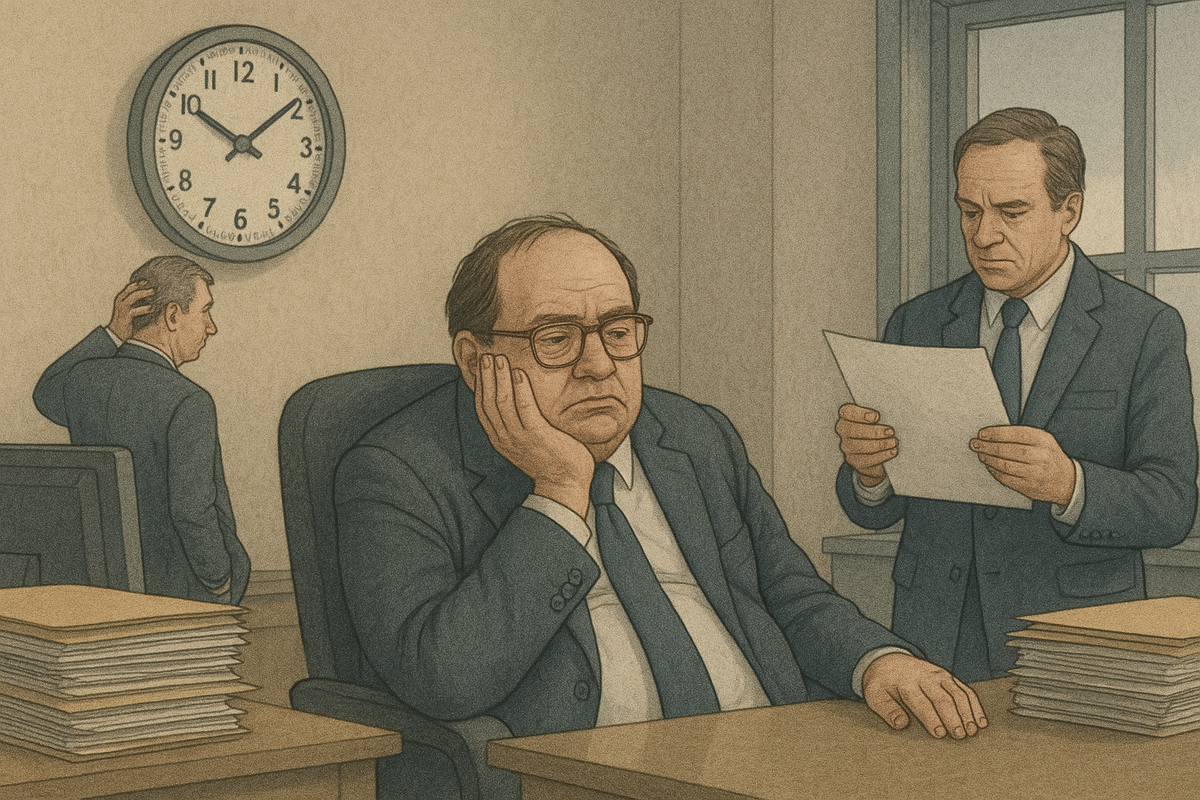
In the great machinery of British governance, few cogs are as misunderstood - or as quietly problematic - as the quango. These curious creatures, formally known as quasi-autonomous non-governmental organisations, were designed to bring expertise, focus and a dash of independence to the delivery of public services. In theory, they help government function more smoothly by taking on specialist roles at arm’s length from Whitehall. In practice? Well, sometimes they behave more like detached limbs than helpful extensions.
Let’s start with what a quango is. It’s not a government department, nor is it a private company. It isn’t a charity, a pressure group, or an elected authority. Think of it as a publicly funded body that operates somewhat independently, that is, until things go wrong, at which point everyone pretends they’ve never met.
Quangos have been created to do all sorts of things: regulate, advise, distribute funding, and occasionally generate enough bureaucracy to warm the hearts of *Kafka enthusiasts everywhere. From the Food Standards Agency to Ofcom, these bodies are intended to be neutral, expert-led, and nimble. However, much like an over-engineered umbrella in a stiff wind, they don’t always hold up under pressure.

So, where does it all go wrong?
The first red flag is accountability - or lack thereof. Many quangos exist in a foggy twilight zone where it’s unclear who’s in charge. Ministers say they’re independent. The quangos say they’re bound by government objectives. When things go sideways, both point at each other like kids caught with a broken vase. It’s an exquisite dance of blame-avoidance.
Then there’s the issue of duplication. Britain has a proud tradition of inventing multiple organisations to do roughly the same job while elbowing each other for funding. Add a sprinkle of mission creep, and you’ve got a regulatory body originally set up to oversee fish quotas now issuing press releases on sustainable packaging.
Efficiency? That old chestnut. Some quangos seem to confuse efficiency with ‘holding very long meetings about strategy without ever executing one.’ Without strong governance or performance measures, they can become slow-moving, overly bureaucratic, and resistant to reform - like a steam train being asked to perform a three-point turn.

Transparency doesn’t always fare much better. While quangos aren’t secret societies, they often operate with a degree of opacity that would make MI5 blush. Public money is spent, decisions are made, but good luck finding out how or why unless you’ve got a Freedom of Information request and a lot of patience.
And let’s not forget the political appointments. In theory, boards should be packed with experts. In practice, we occasionally see a game of musical chairs for ex-MPs, party donors, or vaguely connected individuals whose main qualification appears to be a double-barrelled surname and a LinkedIn profile heavy on consultancy buzzwords.
To be fair, not all quangos are inefficient or mismanaged. Some do their jobs well and provide vital services. But the system as a whole suffers from a lack of strategic coordination, review, and dare we say it - common sense.

So, what’s the solution?
We could start with regular reviews, clearer remits, and performance metrics that actually mean something. Perhaps even a national audit of what quangos exist, what they cost, and whether we still need them, or whether they’ve drifted so far from their original purpose that they now serve mainly to exist.
In a time of tight budgets and growing public scrutiny, it’s fair to ask: are our quangos still fit for purpose, or have they become bureaucratic curiosities left to self-perpetuate under the radar?
After all, when public money is at stake, “quasi-autonomous” should not mean “quasi-accountable.” And if we’re going to keep them, let’s make sure they serve the people - not just their own paperwork.
* "Kafka Enthusiast" or "Kafkaesque" in plain English means a situation that is confusing, illogical, and feels like a nightmare, especially when you're dealing with complex and absurd bureaucracy or unfair systems where you feel powerless. It's like being trapped in a situation where no matter what you do, nothing makes sense, and you can't get out of it — and no one will explain why.
Think:
- You're accused of something, but no one tells you what.
- You keep getting passed from office to office, and no one can help.
- The rules keep changing, and no one tells you what they are.
All of that is Kafkaesque. It comes from the style and themes of Franz Kafka, a writer known for stories just like that
Published 27 March 2025





